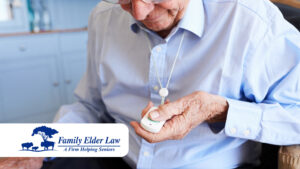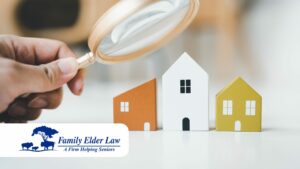As you watch your senior parents age, living on their own, are you concerned about their safety and ability to call for help? Have you heard about medical alert systems? Medical alert systems play an important role in providing emergency assistance and saving lives, especially for our senior aging parents who often face increased risks of health-related emergencies, including falls. In addition, these life-saving technologies typically involve tools such as a wearable pendant, lanyard, bracelet, or phone app and include an emergency call button.
As you consider the medical alert systems, you need to be sure to ask your senior parents what they think. Together you need to ask questions such as: Are they concerned about their safety in their home? Do they know who they would contact if they fell? Would they be willing to wear a device such as described above to alert emergency services? Be sure to listen to any questions your senior parents may have.
In regard to the wearable devices for the medical alert systems, how do these devices work to protect our aging parents when they wear them? The alert device can, when activated during a health crisis, send a signal for immediate medical assistance. Depending on the system, it can:
- Automatically contact 911,
- Connect the user with a live agent from a care control center through a two-way intercom, and
- Respond with a swift and appropriate response.
What else can be included? There are a few essential add-on features that will further bolster the effectiveness of medical alert systems. Let us share those features below in order to further protect your aging parents:
1. Look into voice extenders. Home-based alert systems, which are different from mobile systems, require the wearable alert device to connect to a central plug-in unit that operates like a speaker phone. When the call button is pressed, a medical dispatching agent communicates with the senior through the unit. Voice extenders enhance communication by enabling both the senior and responder to hear each other clearly from anywhere in the senior’s home.
2. Look into wall buttons. Wall buttons serve as supplementary alert devices placed strategically in potentially hazardous areas, such as bathrooms, kitchens, and at the bottom of stairs. Similar to fire alarms, pressing a wall button triggers contact with an emergency dispatcher through the home unit.
3. Look into voice-activated wall buttons. An innovative variation of wall-mounted alert buttons, voice-activated wall buttons enable injured seniors to call for help by repeating an emergency password or phrase twice in rapid succession. Additionally, they come equipped with long, vertical pull cords that automatically connect to an emergency monitoring agent when pulled.
4. Look into a lockbox. This simple yet invaluable no-tech feature does not necessarily have to be purchased from a medical alert company. The lockbox contains a key to the senior‘s front door, secured with a combination lock, and is clearly visible to emergency responders. This aids responders in gaining swift access to the senior’s home during a health crisis. The lockbox combination, along with detailed health information, can be securely retained and communicated to emergency responders by the medical alert company.
When you consider these essential add-ons for medical alert systems, your aging senior parents can significantly enhance their safety and ensure timely access to critical medical assistance when needed. These features provide an additional layer of support, peace of mind, and rapid response during emergencies.
We know this article may raise more questions than it answers. Our office can help guide a family through long-term care planning for aging parents and loved ones. No matter where you are in life’s journey, we can help. The most important thing is to protect yourself and those you love. Whether you need to update your estate plan, are preparing for future long-term care needs, or have a loved one entering or already in a nursing home, we are ready to assist you. We have three convenient locations and are ready to serve the communities around Highlands and Polk County, Florida. Take your first step by contacting us today.






